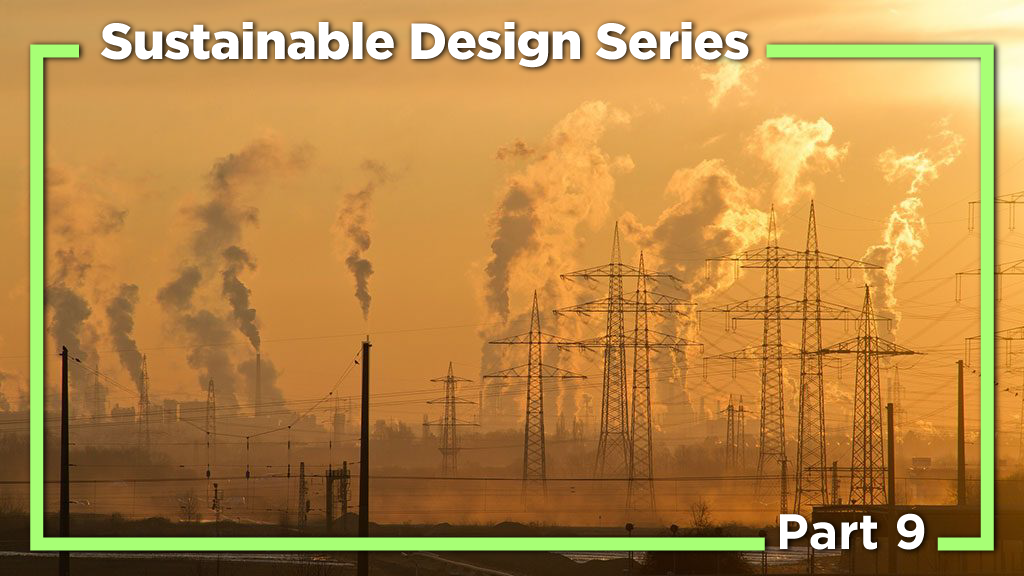The science is clear.
Carbon pollution is no longer an externality we can wish away. Its impact is transnational and massive. Carbon-induced climate change sparked massive forest-fires in western North America, literally wiping villages off the map, and causing smog, haze and air pollution advisories thousands of kilometres away on the East Coast.
Climate change created record flooding in Germany, China and the U.K. killing people and destroying property; caused unusual levels of snow in Brazil; drought and forest fires in California’s Napa Valley damaged 30 per cent of arable land, impacting wine production; heat waves in Siberia; almost 50 C in Vancouver and Sicily, Italy.
We are all complicit in a way.
We all like our individual rights and that includes the right to consume and pollute. Even in the face of overwhelming facts, many people continue to engage in harmful behaviours, manifested most clearly in our dietary choices, smoking and use of fossil fuels, etc., each of which has far-reaching implications on us individually and on society collectively.
Let’s take sugar for example. Once a rare delicacy reserved for royalty, it became so desirable by the masses that it spawned widescale wars of conquest and colonization by European powers in search of suitable agricultural land.
It also triggered an explosion in slavery for the harsh work at sugar plantations. At first, the colonial powers enslaved the Indigenous population and when those native populations were decimated, they started bringing in slaves from Africa. Eighty-four per cent of slaves sent to the Americas worked on sugar planting and processing.
People at the time ignored or avoided contemplating the death, depravation and inhumanity this sugar addiction caused, as we are now ignoring the onset of our sugar-caused health epidemic.
For example, 40 per cent of American adults are either diabetic or pre-diabetic; 74 per cent of American adults are overweight, with 43 per cent classified as obese; and 19 per cent of children are also obese.
Or consider tobacco. In the U.K., despite all the government sponsored awareness campaigns, restrictions on packaging, huge taxes on tobacco, the horrible smell, health impact on smokers’ family members, etc., it is by far the leading cause of premature death (120,000 deaths annually – in 2019). By 2030, smoking-attributed deaths worldwide will reach 10 million annually, with the shocking statistic that smoking will have prematurely killed one billion people during the 21st century. These are one billion totally avoidable premature deaths. Yet smoking is very much legal and people smoke willingly and repeatedly.
The same goes for our addiction to fossil fuels needed to power our lifestyles.
Eight per cent of global power is based on fossil fuels. Carbon comprises 80 to 85 per cent of the weight of crude oil, for example, with heating and cooling consuming 43 per cent of total energy and rising.
HVAC, responsible for 35 per cent of total carbon emissions globally, dwarfs other carbon emitters (e.g. steel, concrete, transportation, etc.). This massive carbon quantity is a direct result of our conscious individual choice to accept poorly designed and built buildings that end up consuming far more energy than necessary, emitting more carbon thus directly polluting the planet.
This has taken the earth to a breaking point. Extremes of heat, drought, fires, floods, hurricanes, rising seawater levels, destruction of forests on land and coral reefs in the sea, reduced agricultural output, etc. are impacting every aspect of our lives. The resulting airborne pollution has reached such bad levels that worldwide, ~90 per cent of people breathe air that doesn’t meet World Health Organization’s minimum health standards.
It is entirely illogical that we accept the use of so much energy for heating and cooling and that is causing all the evident damage to the environment. And illogical to also accept the unhealthy impacts of breathing unhealthy air indoors and outdoors. Yet it is happening. We are poisoning the world and our own bodies of our own free will.
As with all cases of human addiction, it sadly has to come down to government intervention to set things straight. Change will not come from within the fossil-fuel industry, who are the recipients of $5 trillion in annual subsidies, equivalent to six per cent of global GDP. Now we see shareholder revolt and landmark court rulings mandating that the large multinational hydrocarbon firms (e.g. Shell, Exxon, Chevron, BP) drastically cut scopes one, two and three carbon emissions.
Sadly, the large state-owned firms will continue to resist real action to curb their carbon footprint. Their only shareholder, their national government, is so dependent on their revenue stream that they are being pushed to produce and earn more.
For example, the Saudi oil minister just announced that state-owned Saudi Aramco plans on extracting every last hydrocarbon molecule from the ground. Saudi has 260 billion-barrel crude oil reserves, equivalent to 410 billion tonnes of CO2 or 11 times global annual CO2 output.
It is worth noting that about 30 per cent of emitted CO2 is absorbed by the sea, making it more acidic. However, as the sea’s ability to absorb carbon diminishes with increasing temperatures, more and more carbon stays in the atmosphere, lasting for up to 1,000 years, increasing the rate of warming up of the planet for centuries to come. So, the climate change we are seeing today — bad enough as it is — is the result carbon emitted decades ago. And today’s more voluminous carbon emissions will severely impact our children and theirs for decades to come.
The impetus to decarbonize is immediate and we cannot afford to kick the can down the road. Concrete action is required now.
I am convinced that at some point in the not too distant future, courts in developed countries will seek to assign blame and seek restitution for the impact of carbon pollution. With the developed nations’ oil majors already mandated to slash their carbon footprint, and thereby making strides to reduce their carbon footprint, the courts will find the state-owned firms an easier and more cash-rich target to assign guilt, and so will impose massive financial penalties on them, which will then be used to help clean up the environment.
Governments can use a combination of carrot (incentives for more sustainable projects) and stick (penalties for pollution) to create positive change. Sadly, the stick is more effective than carrot and the most logical “stick” is to assign pollution a price that reflects its real impact on the environment. And carbon pricing (applied correctly) will make us individually pay for our choices.
This cost of carbon must be an agreed-to international mechanism that reflects the true cost of pollution along its full value chain and over its lifecycle, and does not simply move that cost to another country, or defer it to a later time horizon.
Manufacturing solar panels, electric car batteries, wind turbine blades, etc. creates pollution, and so we need to reflect that cost in those items as well as their long-term benefits. The true cost of pollution caused by exploring, extracting, processing, transporting and using fossil fuels also needs to be fully reflected, alongside its benefits. Likewise, the true cost and benefit of mining and processing uranium, building nuclear power plants that can accommodate climate change, along with decommissioning and storing the spent fuel for several thousand years needs to be fully reflected.
Determining the true cost of carbon will be the subject of another report, but it is safe to say that the planet can’t afford further delays, piecemeal solutions and rhetoric. We need action, comprehensive root-and-branch changes and we need it now. Technologies available today can help solve this global problem.
This op-ed is the ninth article in a series from Eco-Structures International’s founder and director Ghassan Nimry, which focuses on innovative sustainable engineering solutions to today’s climate change problems. He believes that technology can solve many of today’s seemingly intractable problems, but to make it work we need collective work, personal acknowledgement of our role in the problem and our ability to be part of the solution.
Send comments to editor@dailycommercialnews.com.
Read the past parts of this series below:
Part 1 — The commercial imperative for sustainable design
Part 2 — Can buildings become ‘paragons of efficiency?’
Part 3 — You get what you pay for
Part 4 — We’ve always done design this way
Part 5 — ‘Everything is designed. Few things are designed well’: Brian Reed
Part 6 — If you think it’s expensive to hire a professional, wait until you hire an amateur
Part 7 — Regulators/government, whose interests are being served?
Part 8 –Politicians must put in place real climate-correcting policies











Recent Comments
comments for this post are closed